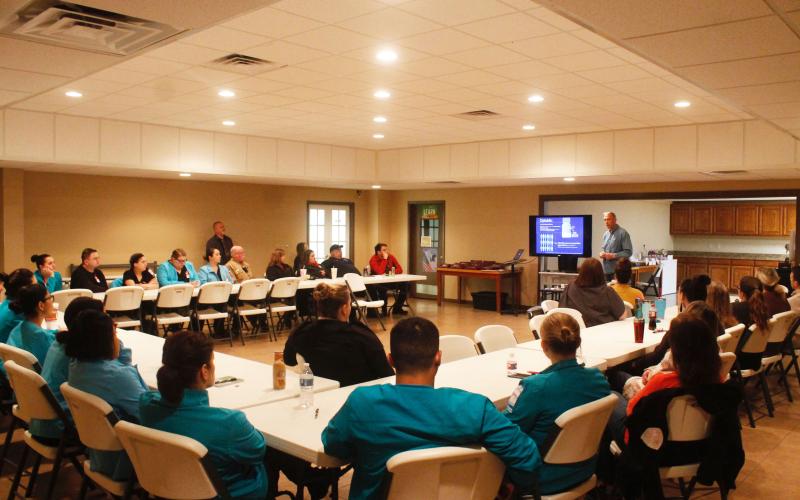TONI presents overdose prevention training to public, first responders
The Stephens Memorial Hospital presented a opioids overdose prevention training on Feb. 19 at the Apostolic Lighthouse Church Fellowship Hall.
The training was a part of the Texas Overdose Naloxone Initiative (TONI). This initiative educates the public on overdose prevention and proper administration of naloxone around the state of Texas.
The event provided citizens, law enforcement and healthcare personnel with an update on the growing opioid overdose epidemic in Texas. The representatives also provided information on the laws regarding naloxone and how to administer each form of the medication.
“We’ve never seen more heroin or more opioids on the streets of America than we do today,” Mark Kinzly, co-founder of TONI, said. “People are going to the corner to treat their illness and there is no quality control on the corner and people often time don’t know the dosage of what they are getting.”
During the 2014 legislative session, the state of Texas passed Senate Bill 1462, sponsored by Senator Royce West. The bill took affected on Sept. 1, 2015, and allows physicians to prescribe an opioid antagonist to anyone in danger of experiencing a drug overdose. The over-the-counter treatment consists of administering naloxone by intravenous or intramuscular injection or by intranasal spray.
“The opioid doesn’t leave the body, as the naloxone lasts 30 to 90 minutes. Opioids overdose last 24-36 hours and heroin lasts 6-8 hours,” Charles Ray Thibodeaux, co-founder of TONI, said. “This product works well, but individuals should still seek medical attention.”
The overdose-saving product ranges in prices at various drug stores from $60-$4000.
According to the National Institute on Drug Abuse (NIDA), the misuse of and addiction to opioids, including prescription pain relievers, heroin, and synthetic opioids, such as fentanyl, is a serious national crisis that affects public health as well as social and economic welfare.
“What we’re dealing with today is different than any other crisis we’ve ever seen in this nation,” Kinzly said. “People are dying and dead people do not get better, so we have to find a way to keep people alive long enough to see hope again in their lives.”
Any individual in need of assistance with substance abuse can call the Substance Abuse and Mental Health Service Administration at 1-800-662-4357.
- Log in to post comments


